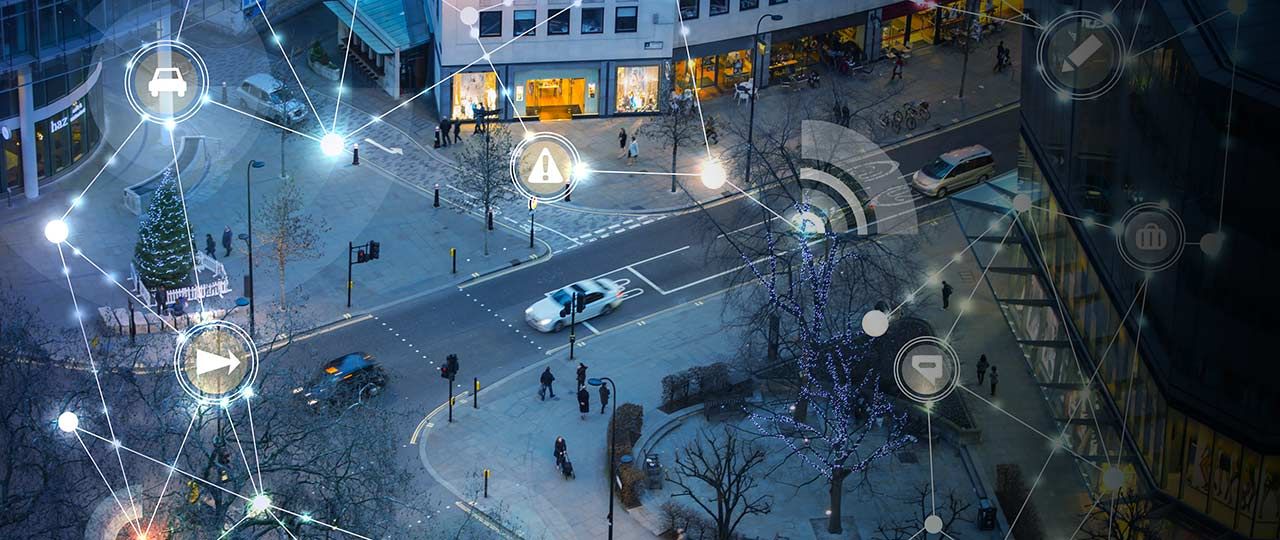
Across the UK, the rise of new technologies and cloud services are transforming the way we live and work. In this new world, the divide between the Gigabit Cities and the broadband blackspots is becoming even more stark.
Just as dial-up died a death, today’s fibre-cabinet model may soon follow suit. But while cities such as York and Milton Keynes embrace lightning-fast connections, other parts of the UK are mired in the internet dark ages. We look at some of the best and worst areas for broadband speed and the impact this can have on property prices.
The new Gigabit Cities
York is best known for its Roman ruins and romantic ambience, but now it has an ultra-fast fibre optic string to add to its bow. UFO (as it’s commonly known) is helping the town’s residents surf the web 100 times faster than the rest of Britain, as part of a £15m pilot scheme.
UFO can provide speeds of up to 1Gbps (one gigabit, or 1,000 megabits, per second). While few households and businesses need these speeds at the moment, this infrastructure will be essential to the future development of 5G networks and the internet of things.
UFO is also heading to Milton Keynes, with Vodafone and CityFibre recently announcing that it will be the first of 12 towns and cities to get a full-fibre broadband network capable of gigabit speeds.
One step down from UFO is the superfast broadband that 90% of UK properties have access to. The downside is that most services are run on a “fibre to cabinet” system, which means that the broadband speed in your home may be considerably slower than you signed up for, depending on how far your home is from the nearest street cabinet.
But that still leaves 1.4 million homes unable to receive speeds of 10Mbps and 192,000 unable to get speeds of 2Mbps.
Where are the broadband blackspots?
You might expect these blackspots to be in the far-flung corners of the UK, but that’s not always the case. Research by uSwitch shows that broadband speed is something of a postcode lottery and only a short drive separates some of the slowest and fastest speeds around.
In uSwitch’s study, 12 streets came out as having average download speeds of less than 2Mbps, including villages in Suffolk, North Yorkshire and Gloucestershire. Bottom of the list was Thorpe Lane in Trimley St Martin, Suffolk, where it would take over 21 hours to download a 2-hour HD film from Netflix.
Which leads us on to our main question…
Does broadband speed really affect house prices?
The answer would appear to be yes, based on studies conducted over recent years.
A 2014 study by the London School of Economics concluded that property prices increased by an average of 3% when broadband speed doubled. Another study estimated that homes without a standard broadband connection could be worth up to 20% less than comparable properties.
What’s even clearer is that if you’re wanting to sell, poor internet connectivity will put off many potential buyers. In Strutt & Parker’s latest Housing Futures survey, 55% of respondents stated that the quality of broadband services was an important factor in their decision of where to live.
“It’s hugely important that Britain gets to grips with delivering cutting-edge broadband,” says Stephanie McMahon, Head of Research at Strutt & Parker. “Our recent Housing Futures survey showed that broadband has become integral to not just the service sector, retailers and manufacturing in the UK, but also the rural economy including those with new start-up businesses based in the countryside, a tribe we call the ‘Rusticarians’ or rural entrepreneurs.”
Buy-to-let investors also need to consider superfast broadband speeds, particularly if they are targeting a market who expect to be able to stream content from Netflix or Amazon as well as shop, work and socialise online.
What to do if you’re in a broadband blackspot
If you’re fed up of slow connection and download speeds, then there are a couple of alternative solutions:
- Check what services are offered to your property either by contacting individual service providers or using a tool such as SamKnows.com to see if your service has recently been upgraded.
- 4G mobile broadband is an alternative to a fixed-line that can provide fast internet access in areas of strong signal.
- Satellite internet can be used almost anywhere and provide speeds of up to 30Mbps.
